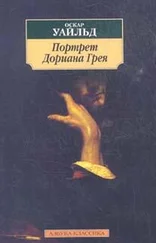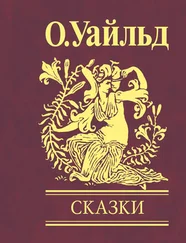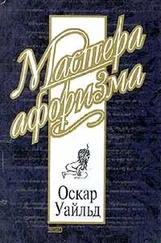HEROD. Salomé, come and sit next to me. I will give thee the throne of thy mother.
SALOMÉ. I am not tired, Tetrarch.
HERODIAS. You see in what regard she holds you.
HEROD. Bring me – what is it that I desire? I forget. Ah! ah! I remember.
THE VOICE OF JOKANAAN. Behold the time is come! That which I foretold has come to pass. The day that I spoke of is at hand.
HERODIAS. Bid him be silent. I will not listen to his voice. This man is for ever hurling insults against me.
HEROD. He has said nothing against you. Besides, he is a very great prophet.
HERODIAS. I do not believe in prophets. Can a man tell what will come to pass? No man knows it. Also he is for ever insulting me. But I think you are afraid of him… I know well that you are afraid of him.
HEROD. I am not afraid of him. I am afraid of no man.
HERODIAS. I tell you, you are afraid of him. If you are not afraid of him why do you not deliver him to the Jews who for these six months past have been clamouring for him?
A JEW. Truly, my lord, it were better to deliver him into our hands.
HEROD. Enough on this subject. I have already given you my answer. I will not deliver him into your hands. He is a holy man. He is a man who has seen God.
A JEW. That cannot be. There is no man who hath seen God since the prophet Elias. He is the last man who saw God face to face. In these days God doth not show Himself. God hideth Himself. Therefore great evils have come upon the land.
ANOTHER JEW. Verily, no man knoweth if Elias the prophet did indeed see God. Peradventure it was but the shadow of God that he saw.
A THIRD JEW. God is at no time hidden. He showeth Himself at all times and in all places. God is in what is evil even as He is in what is good.
A FOURTH JEW. Thou shouldst not say that. It is a very dangerous doctrine. It is a doctrine that cometh from Alexandria, where men teach the philosophy of the Greeks. And the Greeks are Gentiles: They are not even circumcised.
A FIFTH JEW. No one can tell how God worketh. His ways are very dark. It may be that the things which we call evil are good, and that the things which we call good are evil. There is no knowledge of anything. We can but bow our heads to His will, for God is very strong. He breaketh in pieces the strong together with the weak, for He regardeth not any man.
FIRST JEW. Thou speaketh truly. Verily God is terrible; He breaketh in pieces the strong and the weak as a man breaks corn in a mortar. But as for man, he hath never seen God. No man hath seen God since the prophet Elias.
HERODIAS. Make them be silent. They weary me.
HEROD. But I have heard it said that Jokanaan is in very truth your prophet Elias.
THE JEW. That cannot be. It is more than three hundred years since the days of the prophet Elias.
HEROD. There be some who say that this man is Elias the prophet.
A NAZARENE. I am sure that he is Elias the prophet.
THE JEW. Nay, but he is not Elias the prophet.
THE VOICE OF JOKANAAN. Behold the day is at hand, the day of the Lord, and I hear upon the mountains the feet of Him who shall be the Saviour of the world.
HEROD. What does that mean? The Saviour of the world?
TIGELLINUS. It is a title that Cæsar adopts.
HEROD. But Cæsar is not coming into Judæa. Only yesterday I received letters from Rome. They contained nothing concerning this matter. And you, Tigellinus, who were at Rome during the winter, you heard nothing concerning this matter, did you?
TIGELLINUS. Sire, I heard nothing concerning the matter. I was explaining the title. It is one of Cæsar’s titles.
HEROD. But Cæsar cannot come. He is too gouty. They say that his feet are like the feet of an elephant. Also there are reasons of State. He who leaves Rome loses Rome. He will not come. Howbeit, Cæsar is lord, he will come if such be his pleasure. Nevertheless, I think he will not come.
FIRST NAZARENE. It was not concerning Cæsar that the prophet spake these words, sire.
HEROD. How? – it was not concerning Cæsar?
FIRST NAZARENE. No, my lord.
HEROD. Concerning whom then did he speak?
FIRST NAZARENE. Concerning Messias who has come.
A JEW. Messias hath not come.
FIRST NAZARENE. He hath come, and everywhere He worketh miracles.
HERODIAS. Ho! ho! miracles! I do not believe in miracles. I have seen too many. (To the Page.) My fan.
FIRST NAZARENE. This Man worketh true miracles. Thus, at a marriage which took place in a little town of Galilee, a town of some importance, He changed water into wine. Certain persons who were present related it to me. Also He healed two lepers that were seated before the Gate of Capernaum simply by touching them.
SECOND NAZARENE. Nay, it was blind men that He healed at Capernaum.
FIRST NAZARENE. Nay; they were lepers. But He hath healed blind people also, and He was seen on a mountain talking with angels.
A SADDUCEE. Angels do not exist.
A PHARISEE. Angels exist, but I do not believe that this Man has talked with them.
FIRST NAZARENE. He was seen by a great multitude of people talking with angels.
HERODIAS. How these men weary me! They are ridiculous! (To the Page.) Well! my fan! (The Page gives her the fan.) You have a dreamer’s look; you must not dream. It is only sick people who dream. (She strikes the Page with her fan.)
SECOND NAZARENE. There is also the miracle of the daughter of Jairus.
FIRST NAZARENE. Yea, that is sure. No man can gainsay it.
HERODIAS. These men are mad. They have looked too long on the moon. Command them to be silent.
HEROD. What is this miracle of the daughter of Jairus?
FIRST NAZARENE. The daughter of Jairus was dead. This Man raised her from the dead.
HEROD. How! He raises people from the dead?
FIRST NAZARENE. Yea, sire, He raiseth the dead.
HEROD. I do not wish Him to do that. I forbid Him to do that. I suffer no man to raise the dead. This Man must be found and told that I forbid Him to raise the dead. Where is this Man at present?
SECOND NAZARENE. He is in every place, my lord, but it is hard to find Him.
FIRST NAZARENE. It is said that He is now in Samaria.
A JEW. It is easy to see that this is not Messias, if He is in Samaria. It is not to the Samaritans that Messias shall come. The Samaritans are accursed. They bring no offerings to the Temple.
SECOND NAZARENE. He left Samaria a few days since. I think that at the present moment He is in the neighbourhood of Jerusalem.
FIRST NAZARENE. No; He is not there. I have just come from Jerusalem. For two months they have had no tidings of Him.
HEROD. No matter! But let them find Him, and tell Him, thus saith Herod the King, “I will not suffer Thee to raise the dead!” To change water into wine, to heal the lepers and the blind… He may do these things if He will. I say nothing against these things. In truth I hold it a kindly deed to heal a leper. But no man shall raise the dead. It would be terrible if the dead came back.
THE VOICE OF JOKANAAN. Ah! the wanton one! The harlot! Ah! the daughter of Babylon with her golden eyes and her gilded eyelids! Thus saith the Lord God, Let there come up against her a multitude of men. Let the people take stones and stone her…
HERODIAS. Command him to be silent.
THE VOICE OF JOKANAAN. Let the captains of the hosts pierce her with their swords, let them crush her beneath their shields.
HERODIAS. Nay, but it is infamous.
THE VOICE OF JOKANAAN. It is thus that I will wipe out all wickedness from the earth, and that all women shall learn not to imitate her abominations.
HERODIAS. You hear what he says against me? You suffer him to revile her who is your wife?
HEROD. He did not speak your name.
HERODIAS. What does that matter? You know well that it is I whom he seeks to revile. And I am your wife, am I not?
Читать дальше
Конец ознакомительного отрывка
Купить книгу









